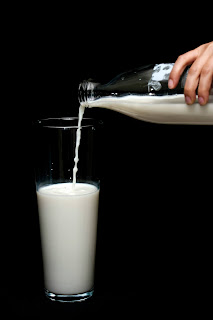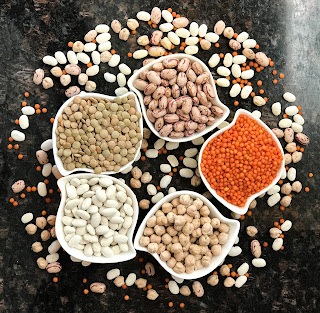List of Protein Foods to Add to your Diet
Protein is a vital part of a healthy diet composed of amino acids that link together differently. Your body uses them to make new proteins, such as muscle and bone, enzymes, and hormones and, can also be used as an energy source. Protein is in a wide range of food and, you can easily incorporate it into your meals daily. The amount of protein your body requires depends on your weight, gender, age, and health. Protein food includes plant and animal sources.
The body makes some of the amino acids and, these are called non-essential amino acids. There are amino acids that your body cannot make (essential amino acids).
The nutritional value of a protein is known by the number of essential amino acids it contains. Different foods have different amounts of essential amino acids and, these include:
- Animal products, soy products have all essential amino acids known as complete protein (high-quality protein).
- Plant proteins usually lack one essential amino acid and are considered incomplete proteins.
Protein foods
Some food sources of dietary protein include:Low-fat dairy products
These include yogurt, milk, cheese, and alternatives.Milk
Milk is a good source of high-quality protein, and it is high in calcium, phosphorus, and riboflavin (vitamin B2).
Greek Yogurt
Greek yogurt (strained yogurt) is very thick and, it pairs well with sweet dishes. It is creamy and is high in many nutrients. Greek yogurt is a protein-rich food that you can take throughout the day.Other options
- Regular full-fat yogurt
- Low-fat cottage or ricotta cheese
Low-fat cottage or ricotta cheese
Cottage cheese is low in fat and calories. It is rich in calcium, phosphorus, selenium, vitamin B12, riboflavin (vitamin B2), and other nutrients. Cheese is high in protein and, you can enjoy it in your scrambled eggs, casserole, mashed potato, or pasta dish. Other high protein types of cheese are;- Parmesan cheese
- Swiss cheese
- Mozzarella
- Cheddar
Fish and seafood
 |
| Fish |
Fish is a healthy food rich in essential nutrients like heart-healthy omega-3 fatty acids. Fish and seafood include; fish, prawns, crab, lobster, mussels, oysters, scallops, clams.
Tuna
Tuna is a popular type of fish low in fat and calories but a rich source of protein. Tuna also contains omega3 fats and many other nutrients.
Shrimp
Shrimp is low in calories but high in selenium, vitamin B12 and omega-3 fatty acids. Salmon is another type of fish.
Lean meats
These include; beef, lamb, veal, pork, kangaroo
Lean beef
Poultry
Poultry, for example, chicken, turkey, duck, emu, goose, bush birds.Chicken
The chicken breast is very tasty in a variety of dishes. It highly contains protein and, if you eat it without the skin, most of its calories come from protein.Turkey
The turkey breast tastes delicious and, highly contains protein, minerals, vitamins with very little fat and calories.
Eggs
Eggs are a healthy nutritious and, readily available food. They are a great source of protein with the egg white composed of pure protein. Eggs are also high in vitamins, minerals, healthy fats, eye-protecting antioxidants, and brain nutrients that you need.
Nuts and seeds
Nuts and seeds include almonds, pine nuts, walnuts, hazelnuts, cashews, pumpkin seeds, sesame seeds, and sunflower seeds. They are delicious in salads, with vegetables and served on top of curries.Almonds
Pumpkin seeds
Pumpkins contain edible seeds called pumpkin seeds that are high in iron, magnesium, and zinc.Peanuts
Peanuts and peanut butter are high in protein, fiber, and magnesium but high in calories. Therefore eat it in moderation.Other high protein seeds
- Flax seeds
- Sunflower seeds
- Chia seeds
Cereals and whole grain
Oats
Oats are healthy grains you can consume. They contain having fibers, magnesium, manganese, thiamine (vitamin B1), and several other nutrients.Quinoa
Quinoa is a popular pseudo-cereal rich in vitamins, minerals, fiber, and antioxidants. It also contains protein.
Legumes and beans
These include all bean types, lentils, chickpeas, split peas, and tofu. You can enjoy beans in soups, casseroles, and pasta sauces.Lentils
Lentils highly contain fiber, magnesium, potassium, iron, folate, copper and, manganese. They are among the best sources of plant-based protein and are an excellent choice for vegetarians and vegans.Other high protein legumes
- Soybeans
- Kidney beans
- Chickpeas
Vegetables
Broccoli
Broccoli is a healthy vegetable that provides protein, vitamin C, vitamin K, fiber, and potassium. It has bioactive nutrients that may help protect against cancer.Brussels sprouts
Just like broccoli, brussels sprouts are a high-protein vegetable. They also highly contain fiber and vitamin C.Summary
As part of a healthy diet, we are recommended particular serves per day from each food group. The human body excretes any excess protein, so the most effective way of meeting your daily protein requirement is to eat small amounts at every meal. As children and teenagers grow, their protein requirements change.Any protein you eat on top of what your body needs will either be excreted as waste or stored as weight gain. Very high-protein diets can strain the kidneys, liver and, can also prompt excessive calcium loss which can increase osteoporosis risks.















Comments
Post a Comment